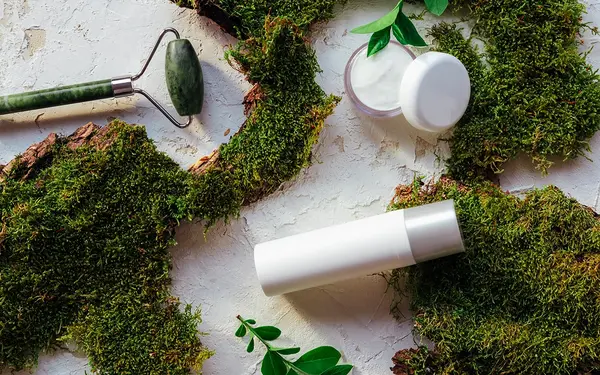Policy & Regulation
Understanding EU Regulations on Cosmetics Sustainability
AAK Personal Care highlights that achieving compliance demands considerable financial investment, time, and effort from both suppliers and manufacturers.

Over the past decade, the cosmetics industry has significantly transformed regarding sustainability, driven largely by growing consumer awareness and a demand for natural products with eco-friendly credentials. The introduction of more stringent sustainability regulations is set to accelerate this trend, impacting all industry stakeholders.
The European Green Deal aims to create a carbon-neutral, resource-efficient, and equitable economy. This initiative presents opportunities for suppliers, manufacturers, and beauty brands to innovate and differentiate themselves by mandating sustainable practices and promoting the development of environmentally friendly ingredients and products. Understanding EU Regulations on Cosmetics Sustainability will empower consumers to choose products that align with their values, while also affecting smallholder farmers and everyone involved in the supply chain.
However, this landmark initiative and the forthcoming wave of EU legislation pose significant challenges for businesses as they navigate these new directives. The impact on the cosmetics industry will be profound, creating ripple effects throughout the entire value chain.
The Background for New Sustainability Legislation
To grasp how various stakeholders can manage and benefit from these new regulations, it’s important to consider the historical context. The 2000 United Nations Global Compact marked a significant milestone in the sustainability movement, urging businesses to adopt socially responsible policies and report on their implementation. This laid the groundwork for subsequent sustainability developments in legislation.
The Sustainable Development Goals (SDGs), introduced in 2015, address critical global challenges such as climate change and biodiversity loss. While companies are not legally required to adopt the SDGs, many, including AAK, have voluntarily integrated them into their business models. Understanding EU Regulations on Cosmetics Sustainability is essential, especially with the Paris Agreement aiming to limit global temperature rise and committing signatories to reduce greenhouse gas emissions.
The 2019 EU Green Deal builds on these foundations, striving for the EU to become the first carbon-neutral continent by 2050. It outlines actions for biodiversity preservation, resource-efficient economic growth, and the promotion of a circular economy. While some measures have already been initiated, the full objectives are expected to take years to realize.
Key New Legislation Overview
EU Deforestation Regulation (EUDR)
Effective from December 30, 2024, the EUDR aims to prevent deforestation linked to agricultural commodities, requiring importers to prove their products are deforestation-free. AAK is committed to establishing 100% deforestation-free supply chains by 2025, which will include cocoa, palm, and soy—key ingredients in the cosmetics industry. Understanding EU Regulations on Cosmetics Sustainability will help businesses ensure compliance by establishing traceable supply chains and geolocation data for products entering the EU.
Corporate Sustainability Reporting Directive (CSRD)
The CSRD significantly expands the scope of companies required to report on sustainability, with the number expected to rise from around 12,000 to over 50,000 by 2026. A key aspect of the CSRD is the double materiality assessment, which requires companies to evaluate their environmental and societal impacts, as well as how these factors could financially affect their business. The implementation timeline starts in 2024, emphasizing the need for transparency and compliance.
Corporate Sustainability Due Diligence Directive (CSDDD)
The CSDDD aims to enhance corporate accountability for environmental and human rights impacts throughout value chains. Targeting large companies, it seeks to ensure they identify and mitigate adverse impacts. While this directive has garnered support, concerns remain regarding its administrative burden and its potential effects on global competitiveness.
Green Claims Directive
This proposed directive addresses misleading environmental claims, also known as ‘greenwashing,’ by setting minimum requirements for making such claims. Companies will need to provide reliable data to support their environmental assertions, empowering consumers to make informed choices. However, the complexity of supply chains presents challenges in effectively measuring environmental impacts.
Collaborative Change
As these regulations are implemented, the need for traceability and transparency in supply chains will increase, necessitating closer relationships between ingredient suppliers and primary producers. Understanding EU Regulations on Cosmetics Sustainability is crucial for ensuring compliance and maximizing benefits for smallholder farmers, who may face challenges in meeting new requirements.
Cosmetic companies may need to reformulate products, diversify ingredient sources, and rethink packaging to align with new environmental and social standards. Lifecycle assessments will be essential in identifying hotspots for intervention, and companies should seek partnerships with suppliers who are transparent about climate risks.
Opportunities for differentiation through innovation will arise, such as implementing green chemistry and investing in renewable energy. The market is increasingly favoring upcycling, waterless formulations, and efficient production methods. Those who adapt swiftly will find a competitive edge in a sustainability-driven market.
Regulatory agencies, industry associations, and research institutes will play crucial roles in shaping and enforcing rules that promote sustainability and protect public health. They must realign their strategies to support the industry in meeting new legislative requirements.
AAK encourages companies to join industry bodies to foster best practices and make a positive impact within supply chains. Comprehensive information about AAK’s sustainability goals and targets can be found in our annual sustainability report, available at http://aak.com and http://aakpersonalcare.com .
TAG: Sustainability, EU, AAK, The European Green Deal, eco-friendly









